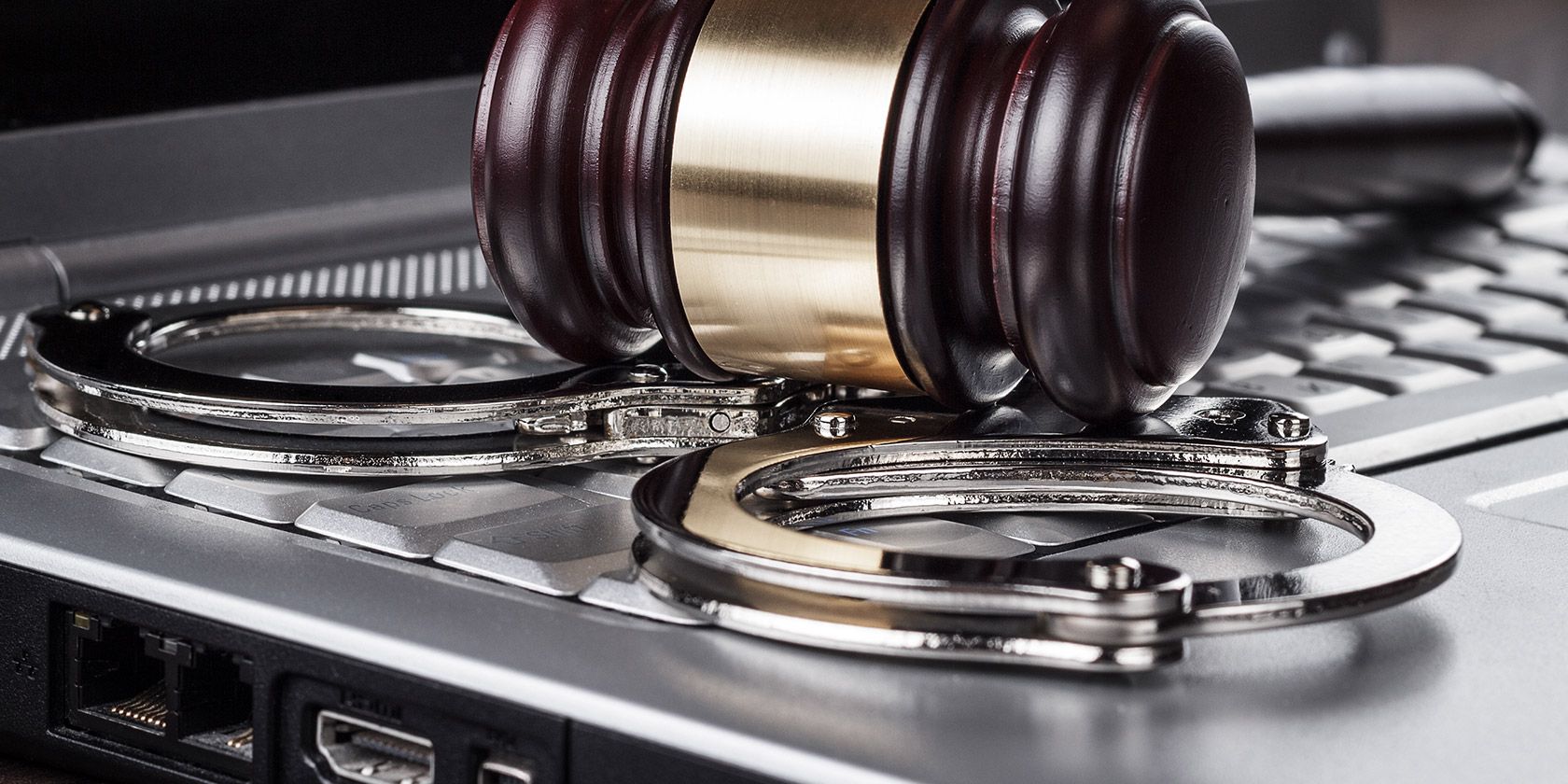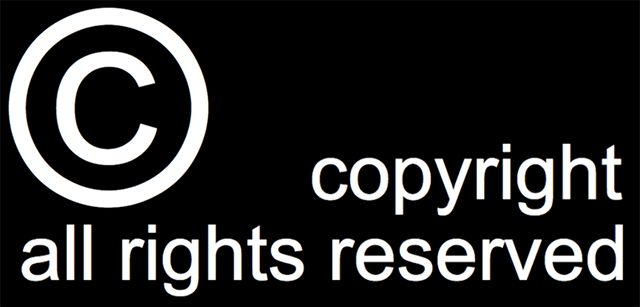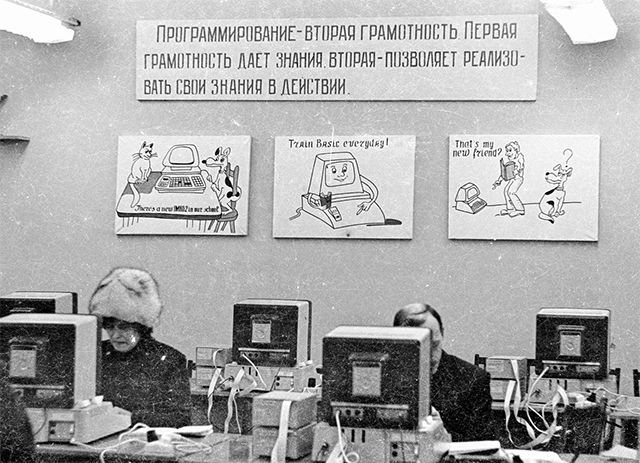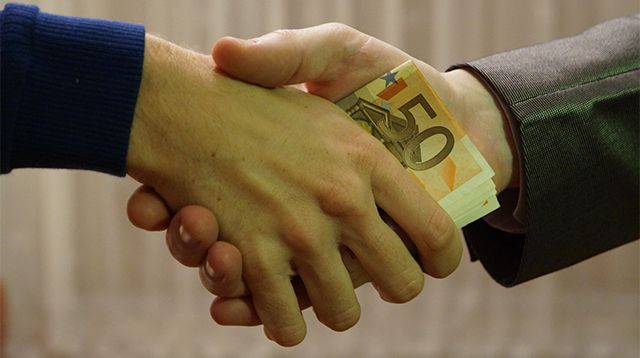Are you breaking the law by the way you use software? There's no simple answer. In fact, with the way that laws and contracts are today, it's almost impossible to know. Still, ignorance is not a valid defense in law.
What's the worst that could happen? It depends where you live, what you did, and how well you can defend yourself. You could be fined, sued, or even do a lengthy prison sentence -- or you could face all three.
Occasionally, software related offenses could even go against criminal codes or espionage acts and arms treaties. And even if that's not the case where you live now, that could change very quickly.
1. Fines for Software-Related Crimes
Most fines related to software are due to copyright infringement. In New Zealand, you could get fined up to $150,000. In the U.S., you can be fined up to $250,000 per offense. In Canada, a fine could be as much as $1 million.
These worst-case scenario fines are usually for commercial-level offenses. That means if you stand to make money from breaking the copyright, these industrial-strength fines apply.
For non-commercial infringement, the fines are generally much lower. For example, in Canada you can be fined a minimum of $100 and a maximum of $5,000. (That's per lawsuit, not per infringement, the difference being that you could have dozens of infringements in one lawsuit.)
In the U.K., you could be fined up to £50,000, or about $75,000. For Americans, the situation is more grim: fines are per infringement and they can range from $200 to $150,000 each. You can see how that can add up in a hurry.
Copyright infringement is generally easy to avoid, but what about other software-related ways you can get fined?
The biggest story on this is Volkswagen using software to fool emissions testing. By putting code into their vehicles that could detect when the car was being tested, they made the car run differently under those circumstances. This gave false results and violated environmental laws in the U.S. -- a mistake that might net Volkswagen up to $18 billion in fines.
Or, could you get fined for working on software in a legitimate job?
Here's the scenario: you're an American company with Russian programmers working on Pentagon software, but there are federal laws that state only U.S. citizens with the right security clearance can work on classified software.
Granted, these Russians were loading viruses into the software. Still, the companies that employed them agreed to pay $12.75 million in fines. Pretty sure those guys lost their jobs, too.
Another way software can get you in hot water is if you use it to cheat on your taxes.
For example, in Canada, if you use Electronic Suppression of Sales (ESS) software, you can be in big trouble. Some businesses use ESS software to delete or modify sales made by point-of-sale (POS) systems. This makes it look like they have lower revenues, so they pay less tax. Fines range from $5,000 to $1,000,000.
Also, did you know that you can get fined for not keeping your security software updated?
In the U.K., if you've got sensitive personal information on a computer and don't take all means necessary to protect it, you can expect to be fined up to £500,000, or about $750,000. In the Sony Data Breach, Sony Computer Entertainment Europe was fined £250,000 pounds, or about $380,000.
Your business might not be Sony sized, but you could still be affected. If you're an accountant or a medical transcriber, this applies to you. Not protecting vital information on your computer puts you in line for the same kinds of fines.
2. Getting Sued for Software Infractions
You could end up being sued for how you use your software. If you think big software companies won't be bothered enough to hunt you down... you're probably right.
But here's something you might not know about getting sued for pirating software: there is a whole sub-species of lawyers called copyright trolls. They're an odious bunch that most lawyers would point at and say, "They're not with us."
The trolls go to software companies and strike deals with them. It could be something like, "For every dollar we get from the pirates, we'll give you 50% for letting us do this in your name."
The software company thinks this is a good idea because if the troll doesn't collect a dollar, they don't owe her a dime. But on the other hand, if the troll does collect money, they get paid AND another software thief gets stopped. Win-win, right?
The troll monitors the downloading of copyrighted material, then they find out the IP addresses of the downloaders. Next, they find the addresses of the downloaders. Finally, they send out a nasty note saying they're going to sue you for bazillions, but if you want to settle out of court, just send them a few thousand bucks and call it a day.
And people fall for this. It might be shame, guilt, or fear that drives them to fall for it, but they fall for it all the same. Being a cutthroat troll can pay big bucks for very little work.
Here's an example: Let's say they're monitoring the downloading of Fallout 4. There could be 100,000 people downloading it illegally, but the lawyer gets the addresses of just 10,000 people and asks each one to settle out of court for $1,000. To the downloaders, it seems like a good deal because hiring a lawyer will cost at least three times that.
Even if only 100 people send her the $1,000, that's $100,000. She gets to keep half and the other half goes to the software company. Pretty easy money for her. Plus, the more successful she is, the more likely other companies will sign on with her. The trolls aren't going away any time soon.
Another lesser-known way to get sued is to sell or buy used software. How could that be bad? Sure, it's the original disks in the original package with the original license. Sure, you don't have it installed anywhere anymore. But still, the transferring of licenses this way could get you sued.
In the U.S., there is the First Sale Doctrine. This means that when you license the use of software, the software remains the property of the copyright holder and the license cannot be resold. But in the E.U., it's legal to sell licenses of software you are no longer using as long as you don't retain any copies yourself.
Here's an even trickier situation. Let's say you install some freeware on your work computer. The license says that you cannot use the software for a business. But it's free, and you're not using it for the business, you're just using it for yourself. So that's okay, right?
Nope. Non-commercial-use software cannot be used on business computers or networks. You could be sued, or worse, your employer could be sued. You know how that's going to play out. You'll end up paying a settlement and a lawyer -- after you lose your job.
This next software gotcha isn't common right now, but expect it to happen more and more. As a software developer you could get sued for security holes in your software. you could get sued if your software might end up getting someone hurt. You could get sued even if your software is just plain buggy.
In 2010, the High Court of the U.K. ruled that Kingsway Hotels could sue Red Sky for their buggy software. PeopleSoft was sued for $510 million over a shoddy implementation of their software. Would someone please tell Microsoft about this?
3. Hard-Time for Infringements
If getting fined for thousands or sued for tens of thousands isn't bad enough, your misuse of software can actually land you in jail or prison. We're talking about doing as much time as some violent criminals. And yet again, copyright violation is at the root of most of these stories.
Japanese pirates face up to two years in jail for copyright offenses. According to Japanese attorney Toshimitsu Dan, "...watching a YouTube video could be grounds for arrest 'if the viewer is aware that downloading [such material] is illegal.'"
U.K. software pirates could go to jail for up to 10 years. In the U.S., Naveed Sheikh was sentenced to 7 years and 2 months for his pirating pursuits.
Your country doesn't have jail time for copyright infringement? It might soon. The Trans Pacific Partnership (TPP) will extend U.S. copyright laws to 11 countries, including Brunei, Chile, New Zealand, Singapore, Australia, Canada, Japan, Malaysia, Mexico, Peru, and Vietnam.
Note: The TPP is a spectacularly horrible piece of law. Seriously, consider supporting the Electronic Frontier Foundation so they can continue to fight for your digital rights.
Sometimes using the wrong software for the job can earn you a room at the iron bar hotel.
Navinder Singh Sarao is sitting in jail until he pays his £5 million bail. Then he faces a long prison term. This is partly due to Sarao allegedly lying to financial regulators by claiming he used basic trading software while committing fraud on the stock exchange.
Apparently, he used commercial-level trading software to make the false trades. Sure, causing a multibillion-dollar stock market crash is the real issue here, but the misuse of software makes his case worse.
Using software to wipe a computer could be trouble, too. Especially if it's your work computer and you don't work there any more. Timothy Allen Lloyd was sentenced to 3 years and 3 months for this.
Lloyd created a program that deleted programs on his former employer's computer network 20 days after he lost his job. Kind of understandable, as this caused about $10 million in damages to the company.
Case Closed: Are You Worried?
Fined, sued, and behind bars -- all over some lines of code. These are just a few of the ways that you could end up in serious trouble due to software-related offenses. Expect to see more of these as software proliferates through every area of life. The Internet of Things and digital rights management will assure that.
Take the time to read that wall of text called an EULA when installing your programs. Think about what you're creating if you're a programmer. Ponder if pirating those Game of Thrones episodes is worth bunking with Bubba and Lefty. Basic, common ethics will usually be a good guide and keep you out of trouble.
Have you ever found yourself in legal trouble due to something software-related? What's your biggest fear? Tell us about it in the comments down below!
Image Credits: cyber crime by Ruslan Grumble via Shutterstock, One Million Dollars via Flickr, Copyright - All Rights Reserved, VW Golf TDI Clean Diesel, Russian Programmers, Self Checkout Using NCR Fastlane Machines, Troll at the door by John Bauer, Hands Shaking With Euro Bank Notes Inside, DMCA Takedown Notice via Flickr, Nina Paley's Mimi and Eunice Non-Commercial Comic via Nina Paley, First Ever Computer Bug [Broken URL Removed], Stop TPP Fast Track via Wikimedia, That's Life via Flickr














